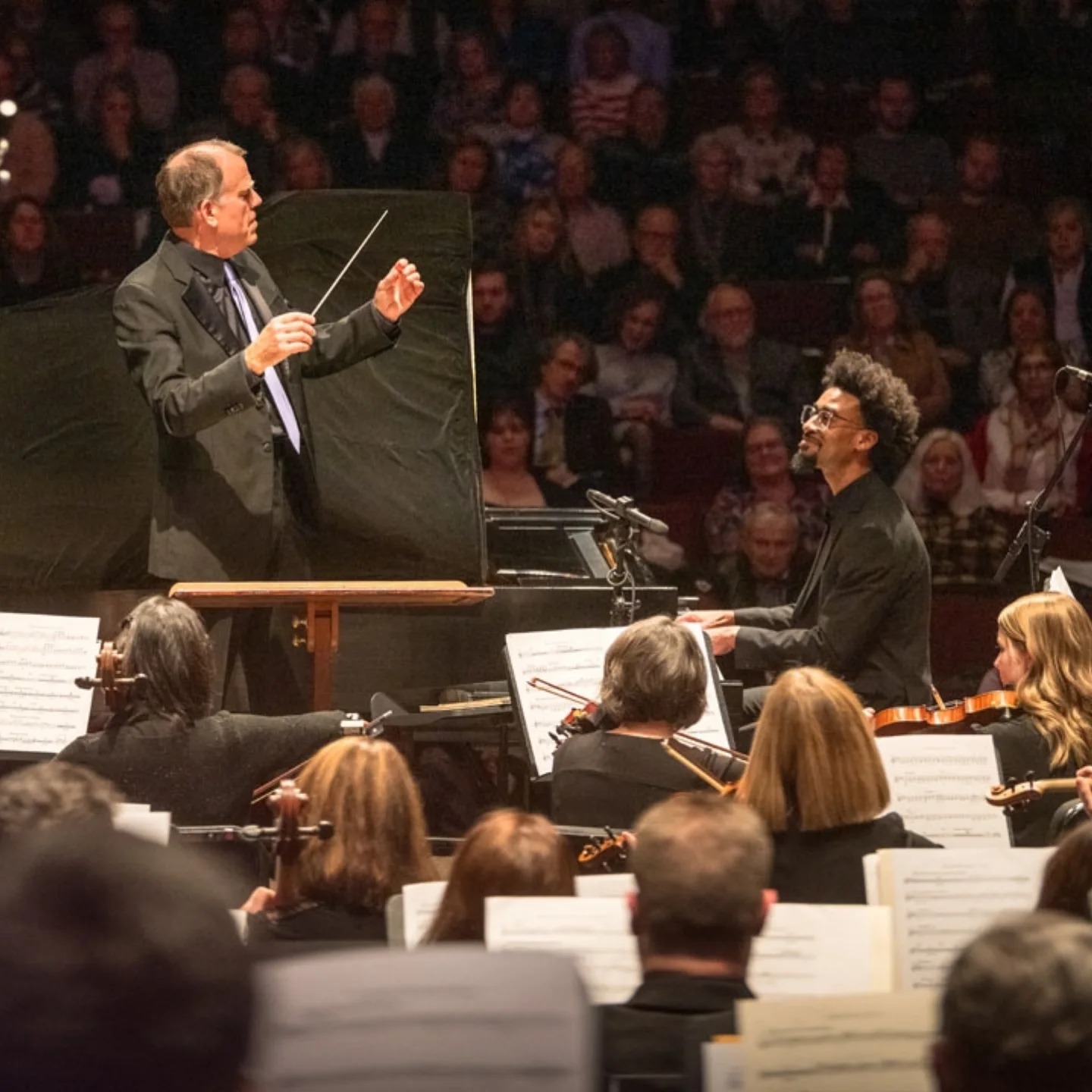by Stephanie Manning

Meaning “indigenous, or belonging to a particular place by birth or origin,” the composer used the word to describe a distinctly American composition — one including not only African American musical styles, but also those from a variety of American cultures. The Akron Symphony’s January 18 concert was this celebration of our country’s music writ large.
Still’s piece made up just one part of the All-American program, heard by a packed house at E.J. Thomas Hall. Throughout, conductor Christopher Wilkins kept the mood energetic but not overeager.
The “Autochthonous” Symphony came across unhurried and lush, with the second movement drawing attention to the principal woodwind players amid sparkles of celesta. Heads began bobbing in the audience and orchestra alike during the perky third movement, where the influence of jazz begins to spread from the brass section.
That blend of joyful and reflective also came across in Omar Thomas’ Of Our New Day Begun, arranged for orchestra from the original wind ensemble version. The piece honors the nine lives lost in the 2015 massacre at the “Mother Emanuel” AME Church in Charleston, South Carolina, and the musicians treated the solemn moments with gravitas.
Balanced with the horror are beacons of hope, like the section of stomping, clapping, and singing of “Lift Every Voice and Sing.” Performing from backstage, the members of the Gospel Meets Symphony Choir (led by Jonathon Turner) had to be amplified — an effect that didn’t feel quite as visceral as having them up close. But using a choir rather than having the orchestra members sing, as they do in other versions, was an inspired choice.
After intermission came Leonard Bernstein’s lighthearted Candide Suite for Orchestra (arr. Charlie Harmon). In a version without singers, the human voices still come through via instrumental soloists, particularly in the sensitive playing of principal cellist Eri Snowden-Rodríguez in “Ballad of Eldorado.”
Selections like the jaunty “Paris Waltz” and the sultry “I Am Easily Assimilated” led into a tender rendition of “Make Our Garden Grow,” featuring outstanding string section playing. However, following up that finale with the Candide Overture was a puzzling programming choice.
It’s still the 100th anniversary year of George Gershwin’s Rhapsody in Blue, although the work is now a few weeks away from turning 101. The Akron Symphony invited local jazz pianist and bandleader Theron Brown to tackle the solo part — a step outside his usual zone, but one he handled with grace.
Brown’s performance began understated, but he loosened up as the piece went on, adding fun improvisational touches here and there. Tempos remained reserved, but the orchestra lent their full support. Principal clarinet Amer Hasan delivered a panoramic opening glissando and a number of equally delightful solos.
The glimmers of Brown’s musical personality in the Gershwin came to the fore in his encore, “That’s All,” which the visibly emotional pianist dedicated to his wife who was seated in the audience. This touching number showed both his affection and his playfulness — fittingly complete with a musical quote from Rhapsody in Blue.
Published on ClevelandClassical.com January 23, 2025.
Click here for a printable copy of this article


